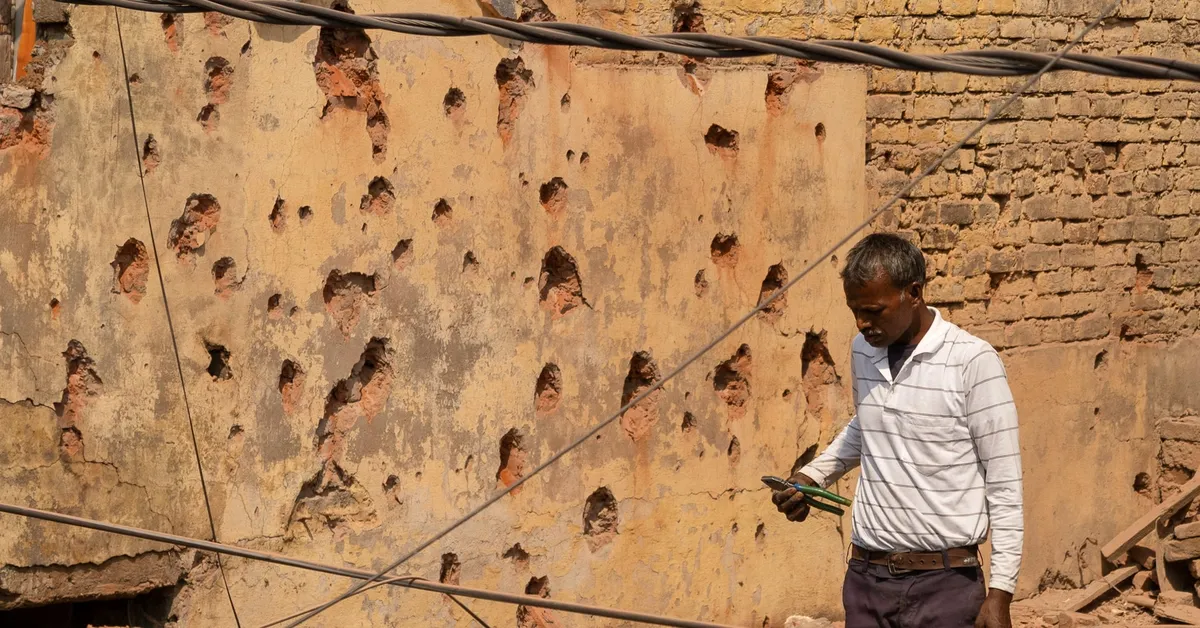
In a significant development, the military operations chiefs from India and Pakistan are scheduled to meet on Monday to discuss the future steps concerning their tense relationship. This meeting comes in the wake of a recent ceasefire that has restored some semblance of calm along the border, allowing both nations’ equity markets to experience a slight uptick. Following a period marked by intense military activity, the night of Sunday was reported as the first peaceful night in several days, devoid of explosions or projectiles.
Despite the relative tranquility, some schools in the region remain closed due to ongoing tensions. The ceasefire was announced on Saturday, following a series of negotiations facilitated by U.S. President Donald Trump, who has offered to mediate in the long-standing conflict over the Kashmir region. This development came after four days of heavy firing and diplomatic efforts to de-escalate the situation.
On Sunday, India's military took the initiative to send a hotline message to Pakistan regarding the ceasefire violations observed the previous day. A senior Indian army officer emphasized New Delhi's readiness to respond to any further incidents. Conversely, a spokesperson for Pakistan's military denied any such violations, showcasing the ongoing mistrust between the two nations.
India's foreign ministry issued a statement confirming that the directors general of military operations from both countries would engage in talks at 1200 hours (0630 GMT) on Monday. As of now, Pakistan has not provided an immediate response to inquiries regarding this meeting.
The relationship between India and Pakistan has soured significantly, particularly after India accused Pakistan of orchestrating an attack that resulted in the deaths of 26 tourists. In retaliation, India claimed to have targeted nine sites related to what they termed as 'terrorist infrastructure' in Pakistan and Pakistani-administered Kashmir. However, Pakistan disputes these claims, stating that the sites targeted were civilian locations.
On another front, late Friday brought news that the International Monetary Fund (IMF) has approved a $1.4 billion loan to Pakistan as part of its climate resilience fund, alongside a review of its ongoing $7 billion program. This financial support may provide Pakistan with some stability amid the ongoing tensions.
In light of these developments, India's main opposition party, the Congress party, which had previously supported Prime Minister Narendra Modi after the April 22 attack, has called for a special session of Parliament to discuss the situation with Pakistan. Congress leader Sachin Pilot expressed the need for the government to clarify its position on American involvement in the Kashmir dispute, emphasizing that this is fundamentally a bilateral issue that should be resolved directly between India and Pakistan.
The Kashmir region remains a contentious point of conflict, with both countries claiming full ownership despite only controlling parts of it. India blames Pakistan for fueling an insurgency that has persisted since 1989, while Pakistan asserts that it only provides moral and diplomatic support to the Kashmiri separatists.
As the situation evolves, all eyes will be on the upcoming talks between the military leaders of India and Pakistan, which may shape the future trajectory of their bilateral relations.